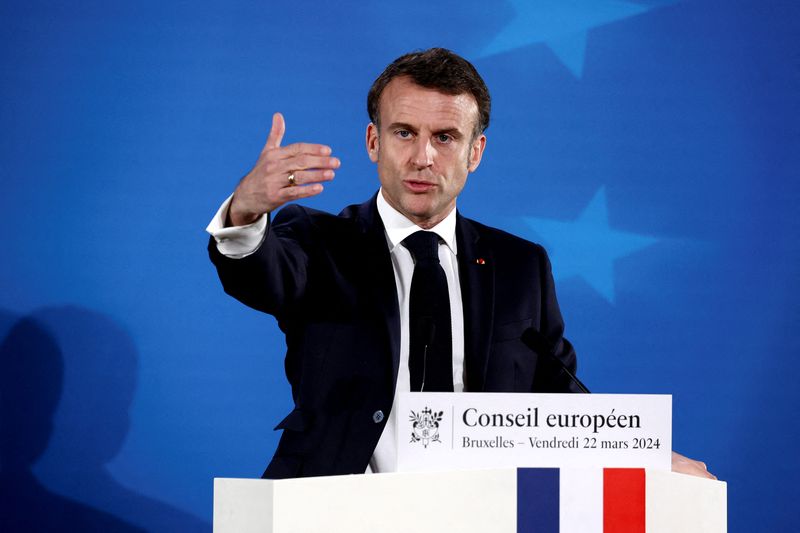Investing.com - The Euro took a hit and stock and bond futures saw a decline on Monday as French President Emmanuel Macron announced a surprise election following a defeat in the European Union vote by the far-right.
Euro Stoxx 50 equity futures saw a dip of 0.4%, and French bond futures also slipped, extending a significant decline from late last week. When broader European markets open later on Monday, the focus for investors is likely to be on Italy's 10-year government bond yield gap over the benchmark German paper, often seen as a reliable indicator of risk appetite in the region.
While center, liberal, and socialist parties are projected to maintain a majority after the European Parliament elections, Eurosceptic nationalists made significant gains in Sunday's vote. This raises questions about the capacity of major powers to steer policy within the bloc.
In an attempt to regain authority, Macron made a risky move by calling for a parliamentary election with the first round set for June 30.
If the far-right National Rally party secures a majority, Macron would be left without influence over domestic affairs.
Meanwhile, Britain will hold a general election on July 4, and critical US elections are set for November. Market stability has recently been challenged as expectations for U.S. rate cuts have faded.
Although the euro and euro area assets have been largely protected by reduced euroscepticism compared to elections in the 2010s and early 2020s, the results and unexpected reaction from France could serve as a wake-up call.
Europe's broad STOXX 600 share index, which has been trading close to record highs, might also be at risk, as could the spread between German and Italian 10-year bond yields.
Last week, the European Central Bank implemented its first rate cut in five years, and the currency has fallen almost 2.5% against the dollar this year, primarily driven by the relative prospects for interest rate cuts in the euro area and the United States.
In France, where concerns about the country's high debt levels have increased this year, the implications of renewed political uncertainty for the economy could also come under scrutiny.
